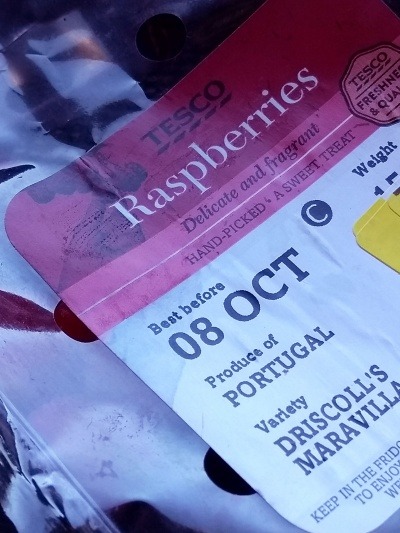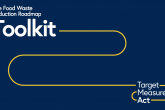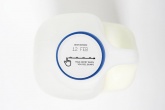Tesco scrapping ‘best before’ labels to reduce food waste
 Tesco will be scrapping ‘best before’ dates from more than 100 fruit and veg lines.
Tesco will be scrapping ‘best before’ dates from more than 100 fruit and veg lines.
Dates on food labels have been shown to contribute to confusion about when items should be thrown away, leading to edible food being wasted. Guidance published by the Waste and Resources Action Programme (WRAP) in 2017 stated that ‘best before’ dates should be employed more frequently than ‘use by’ to try and reduce unnecessary waste, except in those instances where products would be dangerous if gone off, such as meat, fish and dairy.
However, there is still confusion about the meaning of these labels, with many customers treating ‘best before’ dates as if they were ‘use by’ dates and throwing out perfectly edible food.
Across the EU, 35.5 kilogrammes (kg) of fruit and vegetables are wasted per person each year, and this type of fresh produce makes up almost 50 per cent – 17 billion kg – of the total food waste generated by households. While some of this (like peel) is unavoidable, 12 per cent of all fruit and vegetables purchased by EU households ends up as avoidable waste, meaning it could have been eaten.
WRAP data shows that in the UK, households produce 7.3 million tonnes (Mt) of food waste every year, of which 4.4 to 5.7 Mt is preventable – that’s £13 billion worth of edible food ending up in the bin.
After conducting a customer survey that revealed 69 per cent of shoppers would be in favour of scrapping ‘best before’ dates, Tesco has announced that it will be removing these labels from 116 fresh products, adding to the around 70 fruit and veg lines that have already been changed.
"Removing best before dates is our way of making it easier for customers to reduce food waste at home and save money in the process,” said Mark Little, Tesco’s Head of Food Waste Reduction. “It’s simply not right that food goes to waste and we’re going to do everything we can to help.”
Tesco has a strong track record when it comes to tackling food waste, as the first UK supermarket to publish data on the amount of food waste it produces, back in 2013. CEO Dave Lewis has consistently called for other retailers to do the same, and recently signed up to WRAP’s new Food Waste Reduction Roadmap, an initiative hoping to increase transparency from businesses about their waste. 27 of Tesco’s suppliers have since pledged to publicly reveal their food waste data in the next 12 months.
Tesco might be ahead of its competitors, but the supermarket still has a way to go, as it own figures reveal it sent nearly 20,000 tonnes of edible food to anaerobic digestion in 2017/18. However, encouraging customers to think about the waste they are producing is an important part of reducing food waste at home.
Award for trailblazing supermarket
The East of England Co-op, a regional supermarket separate to the national Co-operative Group, has recently been presented with a Sustainable Futures Award from the Institute of Grocery Distribution (IDG) for its own efforts to reduce food waste.
The supermarket, which has 125 stores across Norfolk, Suffolk and Essex, was ahead of the pack on food labelling, becoming the first retailer to sell products past their ‘best before’ dates as part of its ‘Co-op Guide to Dating’ campaign, launched in December 2017.
The items were sold for 10 pence each in order to reduce the amount of food being wasted and to show that food is still edible past its ‘best before’ date. The supermarket’s Joint Chief Executive, Roger Grosvenor, said reduced items were “flying off the shelves within hours”. The Co-op beat competitors including Aldi and Coca-Cola to be unanimously voted the winner of the prize.







